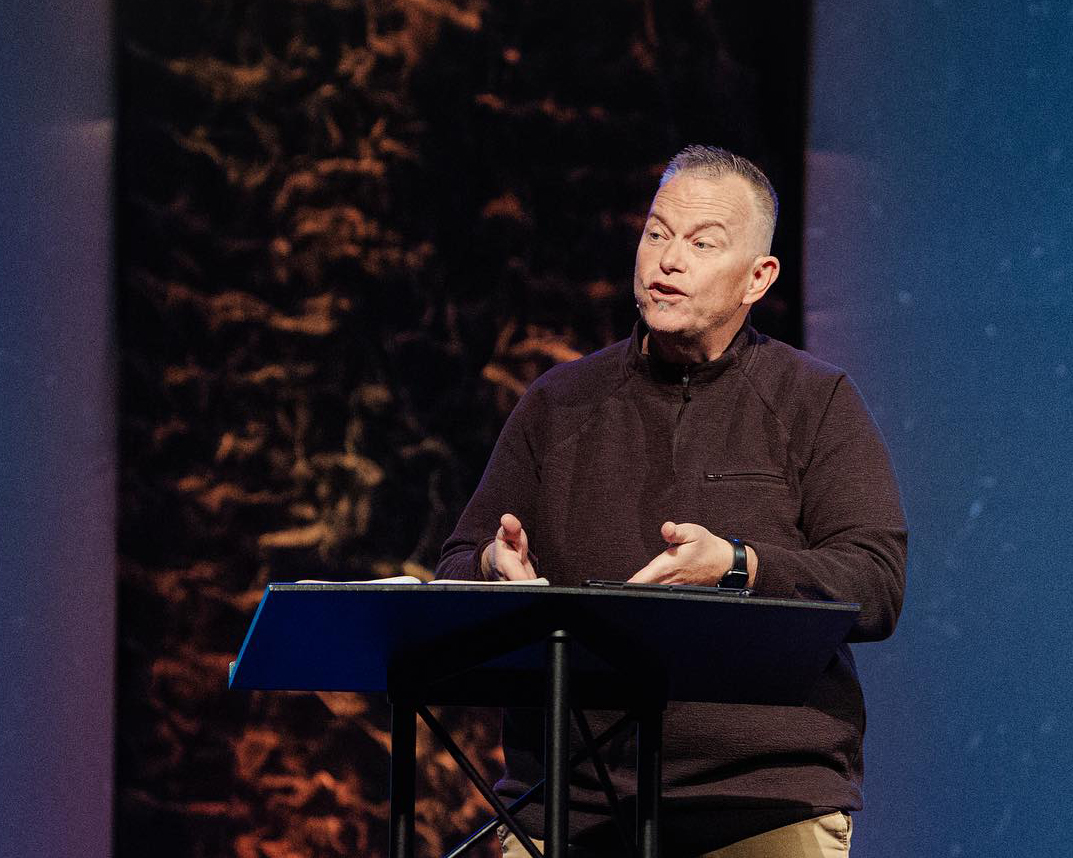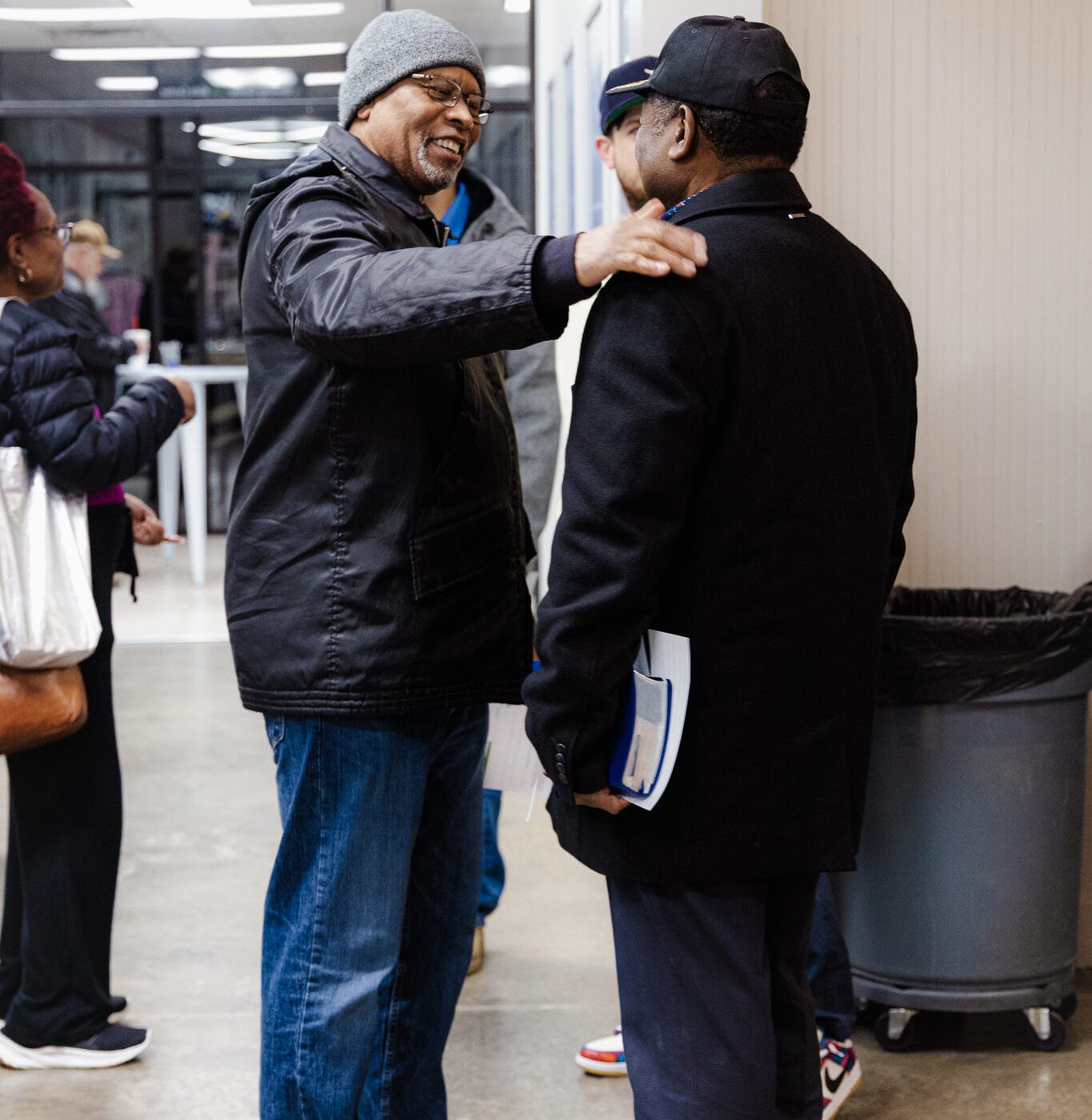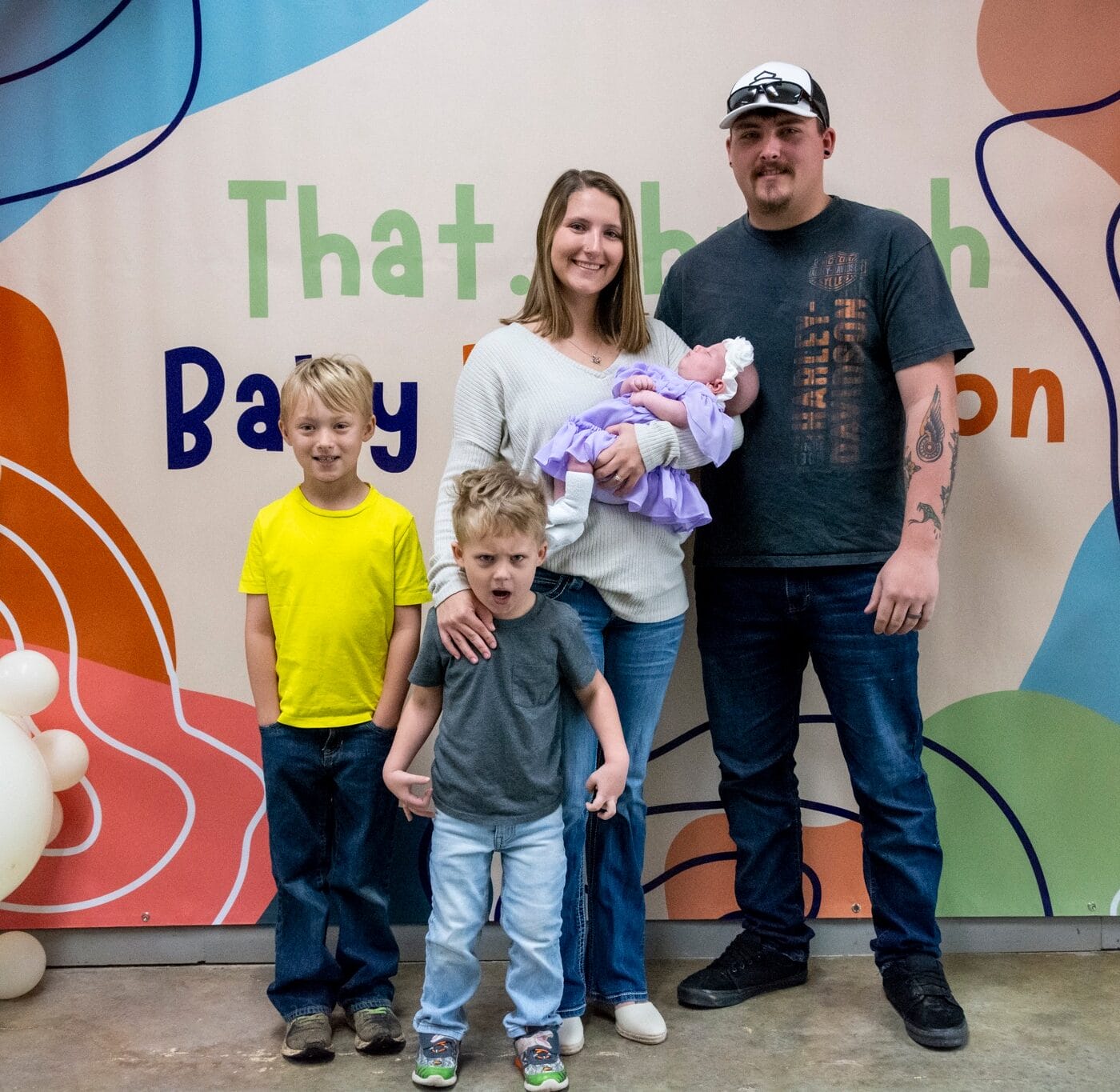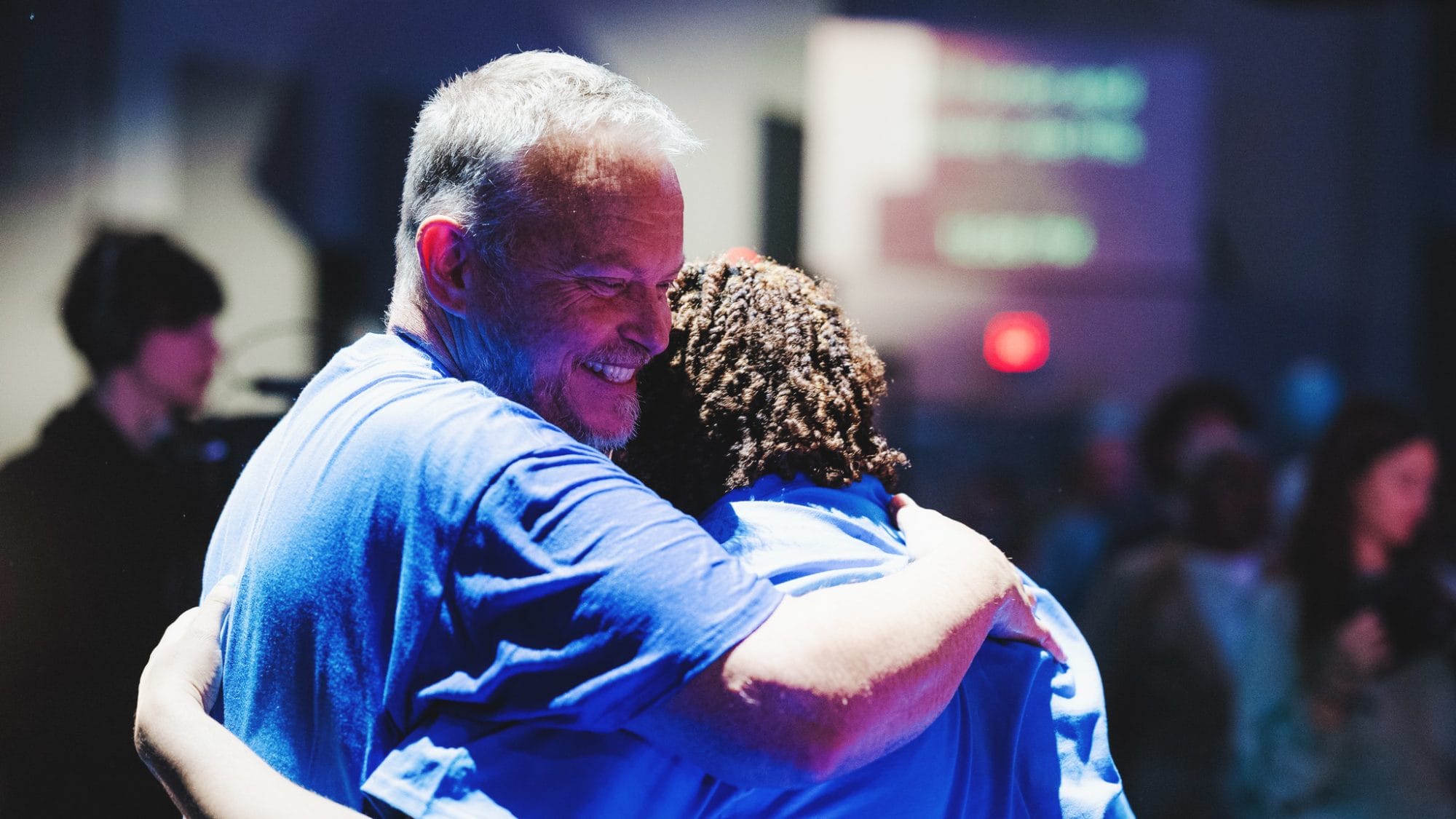Standing in the Gap for the Least of These
Recently, I sat down with Pastor Scott Harness of That.Church in Sherwood to talk about what this church is doing to reach its community and how they serve in foster care. We also discussed the kingdom impact in our city of churches working together to solve our greatest problems.
Here’s what Pastor Scott had to see about each of those things.
What is the origin story of That.Church?
We planted That.Church in 2000 with six people from a Bible study. We just started studying God’s Word, praying, and reaching people right where they were. Our dream was to have a place where you could look across the crowd and see that it was multi-cultural. That there would be people from multiple socio-economic backgrounds. To have that picture of what our community looks like to be in the church, effectively reach people, and have this cohesive family even though we were dramatically different in experiences and other areas of our lives.
One of the areas where we saw God’s favor was that we continually saw people committing their lives to Christ and making really big faith decisions. The gospel was so effective early on with people who had not been in church before and people who didn’t have a religious background whatsoever that you could not deny the fact that God was actively doing something. It wasn’t because we were effectively presenting it or skilled in evangelism. God was just giving His favor in conversations. Over and over again, we saw people giving their lives to Christ. One time, we were at Sam’s Club to buy chairs for the church. In the middle of buying chairs, this lady came up to us and just started a conversation. In an aisle at Sam’s Club, we had this opportunity to talk to her about her relationship with Christ. And, literally, she was ready at that moment to put her life into the hands of a living God and wanted to kneel in the aisle right there.

What is the mission of That.Church?
Our mission is to know Jesus and make Him known everywhere. We believe that God’s greatest desire is to be known and that being known is more important to Him than anything else. Where God is known, there’s salvation. Where God is known, there’s purpose. Where God is known, there’s harmony and unity. Where God is known, there’s restoration and redemption. Wherever He’s known, those things exist. Our desire is to continue to know him and grow in that. Every time we grow in knowledge of God, we’re transformed by Him.
Secondly, we want to make Him known. One of the things that we practice as a church is we do not see ourselves in a Christian country where we’re a church gathering resources for missions. We see ourselves as a mission on a mission field right now. Strategically, we’re trying to reach a pagan nation that does not know the God that we know. We have all these missional strategies for churches in the Philippines or somewhere else, but in America, we acted as if America was a bunch of Christians behaving badly, and we just needed to gather resources so we could carry the gospel somewhere else. I believe America is an unchurched people group. We have a generation being born right now that is unchurched, and they’re being born to parents who are unchurched, and they’re unredeemed, and they don’t know the gospel, and they don’t know the truth. We feel like we are on a mission field, and we strategize that way.
We are willing to do what it takes to reach people who are far from God, and we put up with a lot of messiness to get there. People enter into a relationship with God at different levels of messiness. So, we want to have a capacity and margin for the messiest and the least messy. There are some people who come to know Christ who already have self-discipline. They’ve got a job. They’ve been working for a while. They have a sense of family. They can come to know Christ, and it makes a lot of sense to them. And someone else comes to you, and they’ve burned every bridge. They’re dealing with an addiction. They’ve ruined their family. We want to have the margin for both, and we want to be able to reach both.
I tell our folks all the time, “The whole size of the net you cast will determine the fish you catch.” When Jesus would go to a community, He would answer the questions they couldn’t answer in that community for themselves, whether that was illness, religious oppression, governmental issues or problems, poverty, whatever. He answered those questions. When you answer the questions people in your community are asking, you’ll reach the people in your community. But, in your community, there are subsets of people asking different questions than other people. There are ethnic questions being asked by one group that are not being asked by another. What you offer as a church will determine who you reach, and we want to reach all people with the Good News.

How did That.Church get connected to foster care?
Mary Carol Pederson from The CALL came to me and started running numbers by me. Here’s what’s crazy, I had no idea. When I realized how many kids in our community are in the foster care system through no fault of their own. They’re without permanent parental help. They don’t have a forever home. I knew there was something bad about that. Well, Mary Carol asked me to speak at The CALL, so I did research to prepare. I took one little girl, a stereotype of someone who didn’t have a forever home. What is she most likely to have to deal with? There were twenty-six things I found that she was going to deal with. Everything from sexual abuse to drug addiction to relationship problems like divorce and so forth. Her likelihood of experiencing these twenty-six horrible things was exponentially greater just because she didn’t have a mom and dad.
The catastrophic effect on this little girl bothered me. From that point forward, I knew this was an issue. God has a heart for these children. I knew we couldn’t sit idly by as the Church and not engage this issue. So, I began to confront my church. I began to preach messages on it. I told them, “Here’s the bottom line. If you have extra space, you should have a child in it. If you have extra food in your pantry that you and your family need, you’ve got room for somebody else. We can’t sit back and let these kids go into what they’re going into and not do something about it.”
And our church responded. We had tons of people step forward. It’s not easy. I don’t paint the picture of it being easy, that it’s this Hallmark channel opportunity where you adopt this beautiful little girl, and she comes into your house, and everybody’s happy. It doesn’t work like that. It’s hard and difficult and complicated, but it’s worth it. Of all the things we do, the thing that makes us most like Christ is fostering and adoption. That’s exactly what Jesus did for us. He came for us, and He brought us in. And we’re a mess. We’re problematic. We messed up His household.

At one time, we had 130 or 140 kids adopted out of foster care. Probably four or five times that many in foster care. We have a strong foster care and adoption group. We don’t do foster care to check off a box of one of those things a church needs to do. We have a heart for these little kids, and we keep them present and in front of our people.
People say, “Why don’t you pray for something supernatural?” That’s the problem with us. We’re waiting for God to do something supernatural when God has already given us the capacity to do something about it now. You don’t need a parting of the Red Sea or a raising of the dead or the blind to see for you to do what you can do. If you do what you can do, we solve it. It’s finished. Fostering and adoption are not for everybody. That’s true. But you can do something. And everybody should be doing something. If we really love Jesus, we’re going to stand in the gap for the least of these.
Are there other ways That.Church serves or raises awareness in foster care?
We are constantly raising money for those families in foster care. For example, we recently raised money for a family to buy a dinner table. At Christmastime, we do Christmas for all the kids with The CALL and Project Zero. Last year we did Christmas for around 500 families. Anytime there’s an opportunity, we bring it to the church and say, “Hey, here’s something we could do. Let’s do something about it.”
Our foster care group assembles for prayer, and they support each other. They give everyone a chance to vent their spleen. When you’re going through it, you can be living an incredibly beautiful story, but while you’re in the middle of it, it doesn’t feel incredibly beautiful. When you get around someone else and they go, “Yeah, it stinks. I’ve been there,” it makes a difference.
Is there anything else you want to say regarding That.Church’s engagement in foster care?
Pastors are faced with a lot of problems. We’re asked to give solutions for all kinds of things. As a pastor, you have to see from thirty thousand feet. What you want to do is look at it holistically and ask, “How can I have the most impact?” We’re involved with as much as we can be, but we believe the gospel is the solution to the world’s problems. There are things we don’t have resources to fix, so we lean into the gospel. We can’t do everything, but we can do our part. And we trust God that He’s going to raise up other people to do the things they can do.
The main thing pastors need to realize is to do what they can and pray the rest of it up. You’d be surprised. The more faithful you become, the more resources God gives you. Jesus is the solution for every problem that vexes humanity, so we have to lean into that more than anything else.
How would you describe the importance of churches working together in our city?
I think it’s incredibly important. One of the problems that’s come out of our culture is we, as churches, specialize in looking at each other, nitpicking each other, and tearing each other down. All the while, our enemy is very organized, structured, and ready. We, the Church, on the other hand, are bickering with each other. As a pastor, a lot of times, you feel inadequate. We’re aware that we might not be doing everything right, and we’re not enough. Sometimes, that expresses itself as criticism toward others. If we walked together, things would be different.
The Bible says we’re not wrestling against flesh and blood. My enemy is not my brother, who is across town or even next door trying to run his church. I think, working together, we could exponentially help each other. We could listen to each other, learn from each other, and share resources with each other. Back in the day, the Church didn’t get along on every level, but you didn’t mess with the Church. The Church had a certain horsepower. We don’t have that anymore. We need each other. We need to grow, and we need to be stronger.
Imagine all churches working together for the good of the city to solve problems and help everyone flourish. What do you think would be different about our churches and city if that were true?
It would give everyone a vision of God’s kingdom rather than our kingdom. We’re sensitive to do things we put our name on. If we were willing to work together and not have to have credit for it, you would actually see things change. It would look like everyone elevating Jesus above everything else. It would be people saying, “Our goal is to do it to the glory of God and the good of people, and we do that together.” If we did that, we would get a greater sense of kingdom than what we do in areas where it’s just us.
Think about all the things that would not have existed if wasn’t cooperative work. We wouldn’t have missions work, hospitals, or orphanages. We wouldn’t have school systems like we have today. We wouldn’t have the Red Cross. We wouldn’t have nursing. We wouldn’t have the abolition of slavery. All of that is because of the cooperative work of the Church. The Church did big things back in the day because the Church worked together. There was cooperation. We need that now because our enemy is cooperating. We should do the same thing. Then we would see things happen that we read about happening rather than just read about them. Our generation has an opportunity to do that.
We are thankful for the exceptional work of That.Church and all the churches in our city answering God’s call to care for orphans and widows (James 1:27). They’re helping the whole Church grow.
Speaking the truth in love, we will grow to become in every respect the mature body of him who is the head, that is, Christ. From him the whole body, joined and held together by every supporting ligament, grows and builds itself up in love, as each part does its work.
Ephesians 4:15-16


